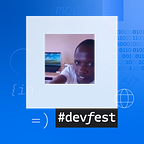Top 10 Blockchain Development Frameworks You Must Know
Introduction
With the development of blockchain technology, there have been an increasing number of developers who are looking to use blockchain frameworks to build decentralized applications (DApps). The use of these frameworks has become particularly popular due to their ease of use and their ability to work with different blockchain systems.
In this article, we will look at the top 10 blockchain development frameworks, which are commonly used by blockchain developers.
1. Hyperledger Fabric
Hyperledger Fabric is a popular open-source blockchain platform that is written in the JavaScript language. It is used to build permissioned distributed ledger networks, which are designed for enterprises that need to keep their data secure and private. Hyperledger Fabric provides a modular and flexible architecture that allows developers to easily develop and deploy applications that are tailored to their specific needs. It is also the first blockchain platform to support distributed ledger networks with smart contracts.
2. Ethereum
Ethereum is an open-source blockchain platform that is written in the Solidity language. It is used to build decentralized applications (DApps) and distributed autonomous organizations (DAOs). Ethereum provides developers with a powerful development environment and a wide range of tools to build, deploy, and manage applications. Ethereum is well known for its smart contracts, which allow developers to create immutable, self-executing contracts that are enforced by the blockchain.
3. EOS
EOS is an open-source blockchain platform that is written in the WebAssembly language. It is used to build decentralized applications (DApps) and distributed autonomous organizations (DAOs). It is well known for its high scalability and flexibility, as it allows developers to easily develop and deploy applications that are tailored to their specific needs. In addition, EOS also provides developers with a wide range of tools to manage their applications.
4. Corda
Corda is an open-source distributed ledger platform built on the Ethereum blockchain technology. Corda allows companies to develop applications on a robust, vendor-neutral foundation. It is used by 90 of the top 100 banks and financial institutions in the world to streamline processes, reduce costs, and increase productivity. The platform uses state-of-the-art cryptography to secure all data, ensuring that sensitive information can be shared with permissioned users. Applications are run on Corda’s own protocol, so they can communicate easily while retaining privacy.
5. Hyperledger Sawtooth
Hyperledger Sawtooth is an open-source blockchain platform that is written in the Python language. It uses smart contracts to facilitate building and deploying distributed ledgers for enterprises that need to keep their data secure and private. Hyperledger Sawtooth provides developers with a powerful platform to build applications with high scalability and flexibility. In addition, Hyperledger Sawtooth enables developers with easy access to command-line tools to develop, deploy, and manage smart contracts from within their own environment.
6. Ripple
Ripple is an open-source blockchain platform that uses the JavaScript language to structure distributed ledger networks. Made for enterprise applications, Ripple has a number of tools and features to speed development and deployment. The company provides APIs, SDKs, gateways, and other tools to help developers quickly get started building network applications. Ripple can be used with any JVM-compatible platform, including Java, Kotlin, Node.js, Scala, etc.
7. Quorum
Quorum is a distributed ledger network developed by J.P. Morgan to help customers meet their global transaction processing and data privacy needs. It helps them develop applications with high scalability and flexibility while maintaining data security. Quorum has two major components: smart contracting functionality called the Ethereum technology, which comes from Ethereum, and an application layer that provides privacy and data control. Quorum can be used in many industries, such as healthcare, energy, and media.
8. Hyperledger Iroha
Hyperledger Iroha is an open-source blockchain platform that is written in the C++ language. It allows developers to build distributed ledger networks, which are designed to keep data secure and private. Hyperledger Iroha provides developers with a powerful platform to build applications with high scalability and flexibility. In addition, it provides developers with a wide range of tools to develop, deploy, and manage applications. The tool provides them with the following features:
- It supports multiple protocols like TLS, Kafka, NodeJS, gRPC, and REST.
- It does not require adapters or a complex deployment API.
- The consensus model is based on chaincode.
- It is robust and secure.
9. IOTA
IOTA is an open-source blockchain platform designed with JavaScript. It can be used to build reliable networks that keep data secure and confidential. Developers have access to a powerful platform for creating applications that are highly scalable and versatile. IOTA has the necessary features for each stage of application development — from building to deploying and managing them.
10. NEO
NEO is a blockchain platform that uses smart contracts and digital identities to digitize assets. NEO has the Ethereum Virtual Machine (EVM) embedded into its core architecture, with which developers can use it as a building block to create new distributed ledger applications. The project provides a solid foundation for programmers, who may target NEO’s ecosystem rather than have to build their own blockchain network. NEO enables untrusted transactions by interesting developers with finite resources.
Conclusion
The use of blockchain development frameworks has become increasingly popular among blockchain developers due to their ease of use and their ability to work with different blockchain systems.
In this article, we have looked at the top 10 blockchain development frameworks that are commonly used by blockchain developers. Each of these frameworks has its own strengths and weaknesses, so it is important to consider your specific needs before deciding which one to use.
